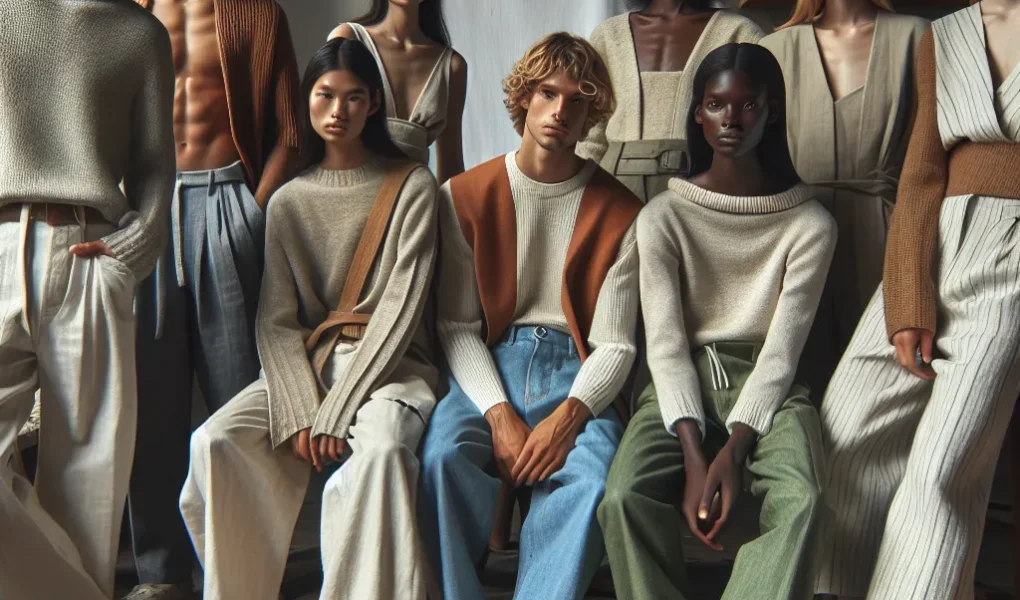The Impact of Sustainable Fashion on the Environment
In recent years, the fashion industry has undergone a significant transformation, with a growing emphasis on sustainable practices and eco-friendly materials. This shift in consumer awareness has led to the evolution of sustainable fashion trends, with a focus on reducing the environmental impact of clothing production.
The impact of sustainable fashion on the environment is multifaceted. One of the key aspects is the use of organic and natural materials, such as organic cotton, hemp, and bamboo, which require less water and fewer chemicals to grow compared to traditional cotton. This reduction in water usage and chemical pollution helps to preserve vital resources and protect ecosystems.
Furthermore, sustainable fashion also encompasses the concept of “slow fashion,” which promotes the production of high-quality garments designed to last, as opposed to the fast fashion model characterized by rapid turnover and disposal of clothing. By encouraging consumers to invest in timeless pieces and reduce overall consumption, sustainable fashion aims to minimize the accumulation of textile waste in landfills.
Another critical element is the implementation of ethical and transparent supply chains, ensuring that workers are treated fairly and production processes minimize energy usage and carbon emissions. By supporting sustainable fashion practices, consumers can contribute to the preservation of natural habitats, the reduction of greenhouse gas emissions, and the overall protection of the environment.
In conclusion, the evolution of sustainable fashion trends is driven by the recognition of the profound impact of fashion industry practices on the environment. Through the adoption of eco-friendly materials, the promotion of “slow fashion,” and the establishment of ethical supply chains, sustainable fashion is making strides in reducing its environmental footprint and paving the way for a more responsible and eco-conscious industry.
Innovative Approaches to Sustainable Fashion Design
As sustainable fashion continues to gain momentum, innovative approaches to sustainable fashion design are playing a crucial role in shaping the future of the industry. Designers and brands are increasingly investing in sustainable materials and production methods to minimize their environmental impact and promote ethical practices.
One of the most prominent innovative approaches is the use of alternative and eco-friendly materials. From recycled fibers and organic cotton to innovative textiles made from agricultural by-products and even lab-grown materials, designers are pushing the boundaries of traditional fabric sourcing. These materials not only reduce the reliance on non-renewable resources but also contribute to minimizing waste in the fashion industry.
Furthermore, technological advancements have paved the way for sustainable fashion innovation. 3D printing, for example, allows designers to create intricate and customized designs with minimal waste of materials. Additionally, advancements in dyeing processes and treatments are enabling the production of eco-friendly and non-toxic textiles, further reducing the environmental impact of clothing production.
Another innovative approach involves the concept of circular fashion. This approach focuses on creating garments that are designed to be easily disassembled, repaired, and recycled at the end of their life cycle. By embracing circularity, designers are aiming to minimize the amount of clothing ending up in landfills and reduce the overall resource consumption of the fashion industry.
Collaborations and partnerships also play a key role in driving sustainable fashion innovation. By joining forces with scientists, engineers, and sustainability experts, fashion designers are gaining access to cutting-edge research and technologies that enable them to create more sustainable and environmentally friendly designs.
In conclusion, innovative approaches to sustainable fashion design are revolutionizing the industry, driving positive change towards a more eco-conscious and ethical fashion landscape.



